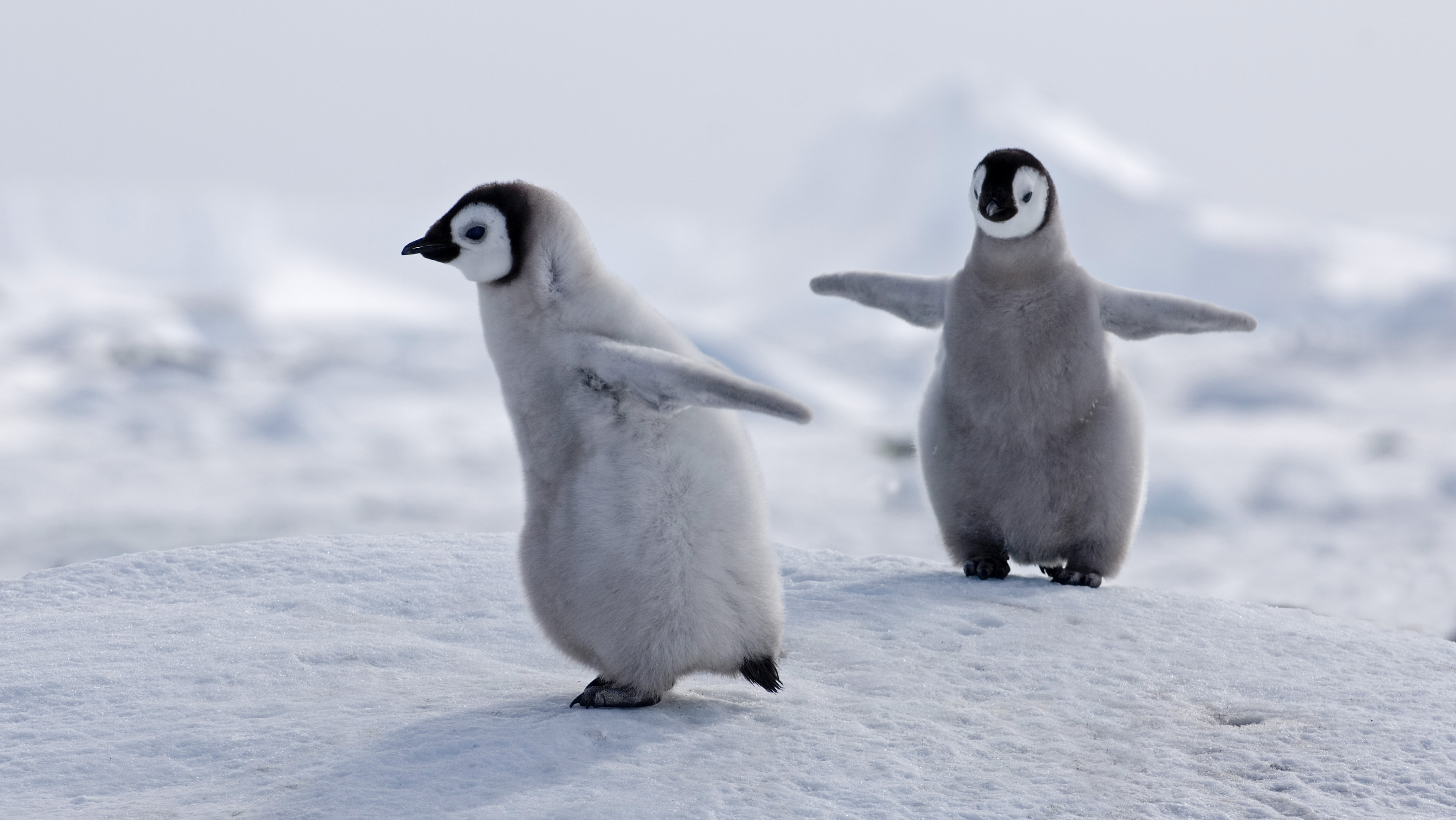The extinction threat to emperor penguins caused by climate change
Thousands of chicks died last year due to receding sea ice in Antarctica

A free daily email with the biggest news stories of the day – and the best features from TheWeek.com
You are now subscribed
Your newsletter sign-up was successful
Thousands of emperor penguin chicks are thought to have died across Antarctica last year as a result of a “catastrophic breeding failure”.
“Abrupt reductions” in sea ice that persisted throughout the year are thought to have caused the deaths of the chicks, according to research published in the journal Communications Earth & Environment.
These penguins, “an iconic symbol of Antarctica”, are threatened by climate change, the study by researchers from the British Antarctic Survey (BAS) said. Efforts to predict emperor penguin populations from sea ice loss forecasts paint a “bleak picture”.
The Week
Escape your echo chamber. Get the facts behind the news, plus analysis from multiple perspectives.

Sign up for The Week's Free Newsletters
From our morning news briefing to a weekly Good News Newsletter, get the best of The Week delivered directly to your inbox.
From our morning news briefing to a weekly Good News Newsletter, get the best of The Week delivered directly to your inbox.
These birds’ “crucial nursery is literally disappearing under their feet”, said Scientific American. Approximately 10,000 breeding pairs in four of the five colonies in the central and eastern Bellingshausen Sea “likely saw all their chicks die”. Climate scientists “expected” to see these penguins “suffer” as sea ice receded, but this loss “has accumulated faster than predicted”.
What happened to the colonies in 2022?
Emperor penguin chicks are born “into the darkness of Antarctica’s long winter”, said Scientific American, and then grow feathers in December – which is midsummer in the Antarctic – to keep them warm, when the days in the southern hemisphere are longest. Until then, chicks are “confined to the sea ice”.
In 2022, Antarctica experienced “record-low levels of sea ice”, said the magazine, with research claiming this led to the deaths of chicks “across the continent”. This is “totally unprecedented”, said BAS geographer Peter Fretwell in Scientific American.
Images taken by the European Space Agency’s Sentinel-2 satellite late last year “looked very wrong”. There had been penguins in all five sites in October, but then “sea ice had disappeared from two sites” in November. And birds “had vanished” from one site that still retained ice. By December “only one colony had both ice and birds,” the publication added.
A free daily email with the biggest news stories of the day – and the best features from TheWeek.com
By the end of 2022, “sea ice extent was the lowest experienced in 45 years”, added Euronews. Scientists also saw images showing sea ice loss “well before chicks would have developed waterproof feathers”.
The study added that 30% of the 62 known colonies in Antarctica sustained at least partial sea ice loss between 2018 and 2022. In 2022, there was a “high probability that no chicks survived” in four of the five colonies observed.
Is climate change definitely to blame?
Antarctic sea ice levels increased slightly between 1980 and the mid-2010s, said Scientific American, but ice has since “retreated”. In general, however, the extent of sea ice around Antarctica “has varied more between years than its Arctic equivalent. The reasons for this aren’t yet clear”, but scientists think “both climate change and natural oceanic cycles” may be responsible.
Emperor penguins are “highly vulnerable in a warming climate”, added Fretwell, with evidence suggesting “extreme sea ice loss events like this will become more frequent and widespread”.
If today’s rates of warming continue, over 90% of colonies “will be quasi-extinct by the end of this century”, Euronews added. This latest research “dramatically reveals the connection between sea ice loss and ecosystem annihilation”, added Dr Jeremy Wilkinson, a sea ice physicist at BAS. “It is another warning sign for humanity that we cannot continue down this path.”
Can we prevent a future extinction event?
The International Union for Conservation of Nature (IUCN), which tracks endangered species across the world, has classified emperor penguins as “near threatened”. Many say they should be lifted into the “more urgent” category of “vulnerable”, due to the “danger posed by climate warming to their way of life”, said BBC News.
If sea ice – a “stable platform [penguins] use to bring up their young” – “breaks up faster”, the birds are “in trouble”, Fretwell told BBC News. Emperor penguins normally respond to sea ice loss by “moving to more stable sites” the following year, said Euronews. But this strategy will fail “if sea ice habitat across an entire region is affected”.
The “devastating” part for Fretwell is “this will get worse before it gets better”, reported The Guardian. “This is the trajectory that we are on. It’s only by changing our behaviour and the amounts of fossil fuels we use will we reverse the trajectory for these emperor penguins, and many other species.”
Keumars Afifi-Sabet is a freelance writer at The Week Digital, and is the technology editor on Live Science, another Future Publishing brand. He was previously features editor with ITPro, where he commissioned and published in-depth articles around a variety of areas including AI, cloud computing and cybersecurity. As a writer, he specialises in technology and current affairs. In addition to The Week Digital, he contributes to Computeractive and TechRadar, among other publications.